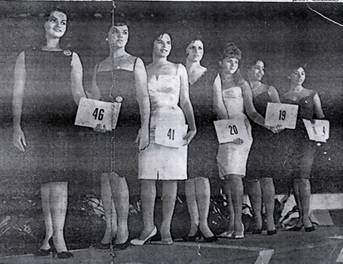
For many, black is a color, in spite of the definition that contends that it is the absence of visible light energy, that absorbs the light and that’s precisely why it isn’t it. Whether from the light emitting groups or the pigments, black has been linked historically and obscurely with the negative, perhaps because of it likeness to the night, that is a dangerous space, that has been the time chosen by many writers to tell tenebrous stories about outlaws and animals that hide in the darkness. Othersalso relateit with what is filthy and dirty.
The astronomers call the extremely dense celestial body that absorbs whatever matter and energy located in its gravitational fielda black hole. For the geographers and people of some countries — in addition to the phenotypic difference — black is a name of rivers, streams, and similar places, of a hill, a volcano or a road; it’s also a sea in Eurasia and in the plural, a Philippine island.But in this writing, I want to highlight superficially the voices that have survived the times, and about the topic on which they record human words and phrases.
Black theater is a cinematic genre developed in the United States, in 1940 and whose plot developed in a violent and criminal environment. Likewise, black friday was a day of financial panic in the United States and also Black Monday in 1987, also related to the prices of stocks. Black Thursday is a day that the fall of the stock market in New York began and signaled the beginning of the great depression in 1929.
The so-called black plague (or bubonic plague), was a devastating pandemic that devastated Europe in the 14th century and that considerably decimated the European and world population; the yellow fever was a devastating epidemic in the 14th century, that was also known as black vomit; lista negra is a translation of English word blacklist to give a name to people or institutions that should be discriminated against.When used in a positive sense, they are given the name “whitelist.”
To distinguish underground or illegal business one adopts the phrase black market; the black catis related to superstition or bad luck, and equally a black vultureis a bird of prey or feeds on dead animals — a bird that doesn’t bode well — to which a bad omen is attributed to; in the same way that black magic is a superstitious witch practice, in that they invoke the presence of a demon and the malignant power to cause damage, the “white” kind is the complete opposite. The expression, “had a black day” is an allegory on unhappiness or bad luck. A black authoris a person who, like an intellectual slave, writes to order and anonymously,
The European colonial powers kidnapped and tore from their communities, families, culture and land from millions of Africans and carried them to America to work as slaves. Furthermore, in order to perpetuate the system of slavery, they imposed a distorted image of black people. Historical and shamefully, the classification of people into one race or another has been used and is used to support keeping groups of humans in a state of subjection, in living conditions of oppression, ignorance and dependence.
I prefer to think of the human race and that stage will come, when we eradicate prejudice and discrimination against people based on racial, ethnic, sexual, religious, ideological, social class or of any kind. I’m sure that one day there will be no need to legislate or circumscribe a moral code of respectful behavior that should be taken as natural behavior of living together and not leave room for racist acts or reprehensible.
Translated by: BW
January 17 2012










